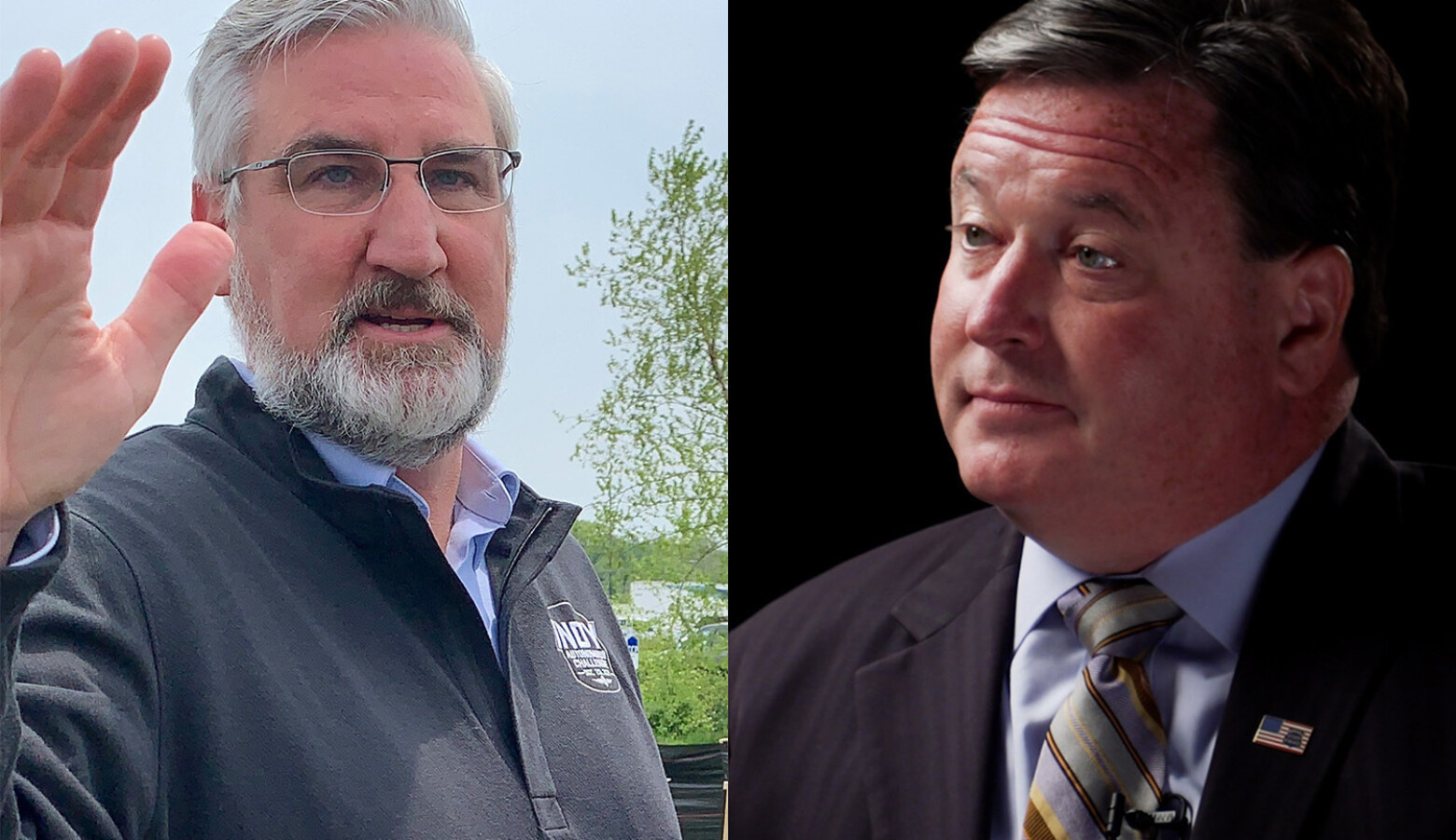Judge Deals Rokita Loss In Court Battle Over Emergency Powers Law

Gov. Eric Holcomb’s lawsuit against the Indiana General Assembly over emergency power legislation can move forward – despite Attorney General Todd Rokita’s best efforts to block it.
That’s after a county judge’s ruling Tuesday.
Legislators passed a law this year, HB 1123, that allows them to call themselves into special session during a public emergency. Holcomb’s lawsuit contends that power belongs, via the Indiana Constitution, solely to the governor.
Attorney General Rokita wanted to stop the case from moving forward. He argued the governor can only bring a lawsuit, using outside attorneys, if the AG gives the OK – which he did not, since he agrees with lawmakers on the issue.
Marion County Judge P.J. Dietrick said Rokita “overstates” his authority. He wrote that Holcomb has a constitutional duty to defend his office in a separation of powers case.
“When separation of powers is at issue – as it is here – the attorney general’s powers do not grant him the authority or ability to prevent a sitting Indiana governor from exercising his or her inherent right to defend the constitutional office of governor by hiring his or her own counsel to do so,” Dietrick said in his ruling.
Rokita argued, though, that his position didn’t stop the law from being challenged. It was up to Indiana citizens, he said, to do so – and one Hoosier already has.
The judge rejected that argument, too.
“There is nothing in the Indiana Constitution that suggests that an Indiana governor must rely on taxpayers to vindicate his/her constitutional rights,” Dietrick wrote. “It may be that taxpayers do not want to spend the time and money to do so. Indiana’s Constitution does not rest on such tenuous grounds.”
READ MORE: How Is Indiana Distributing COVID-19 Vaccines? Here’s What You Need To Know
Join the conversation and sign up for the Indiana Two-Way. Text “Indiana” to 73224. Your comments and questions in response to our weekly text help us find the answers you need on COVID-19 and other statewide issues.
And Dietrick said Rokita’s position would elevate the authority of the attorney general (an office created by state statute) over the governor’s (a constitutionally created office), which he calls “an absurd result.”
The judge also said Rokita, in this case, is trying to represent both the General Assembly and the governor, which are on two different sides of the issue. Doing so, Dietrick ruled, would be an “irreconcilable conflict of interest,” which violates the Indiana Rules of Professional Conduct for lawyers.
The attorney general had also tried to argue the case couldn’t proceed because the Indiana Constitution bars lawsuits against legislators while they’re in session. Normally, lawmakers would have finished session by now, but delays in redistricting data prompted them to prolong the session until November.
But Dietrick dismissed that argument, too, saying that making the legislature immune from lawsuits in this case “would alter the balance of Indiana’s three co-equal branches … [creating] legislative supremacy.”
Rokita is appealing the ruling.
CORRECTION: A previous version of this story said the next step in the case is now arguments in court over whether the law is constitutional. That was incorrect. The next step is a resolution to Attorney General Todd Rokita’s appeal.
Contact reporter Brandon at bsmith@ipbs.org or follow him on Twitter at @brandonjsmith5.

